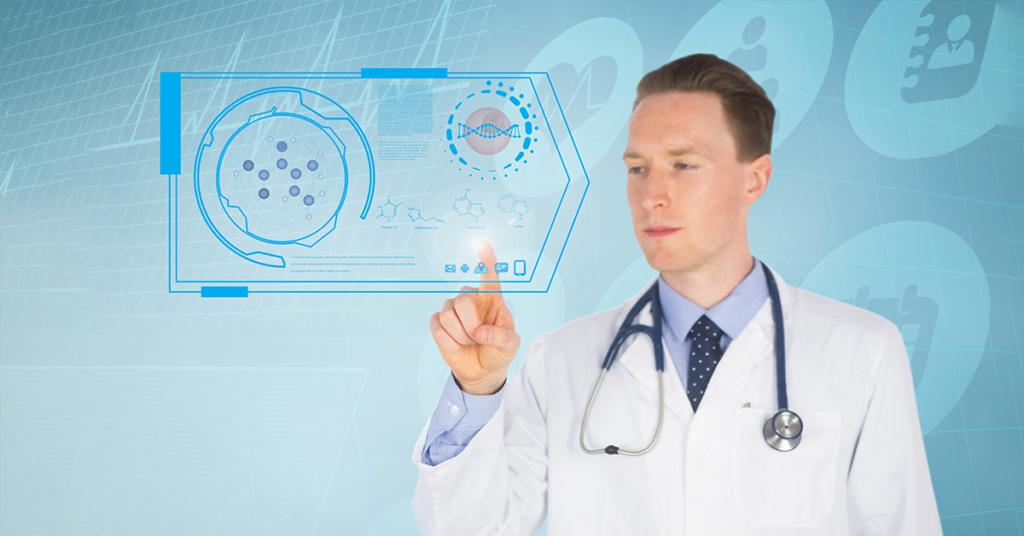From USD 20.9 billion in 2024 to USD 148.4 billion by 2029, the worldwide AI for Predictive Healthcare industry is on a transformative trajectory.
With a compound annual growth rate (CAGR) of 48.1%, this rapid expansion reflects the increasing reliance on AI solutions. Why this surge?
The convergence of massive healthcare databases, the demand to reduce rising costs, advances in computing power, and affordable hardware prices fuels this shift.
But how is artificial intelligence reshaping healthcare’s future?
AI isn’t just changing the game; it’s redefining it. From diagnostics to treatment strategies, predictive AI in healthcare is a powerful tool, processing vast amounts of data to detect patterns and predict health issues even before they emerge.
This means earlier diagnoses, personalized treatment plans, and precision care tailored to individual needs—a futuristic approach that’s both innovative and reassuring.
In this blog, you’ll discover how predictive AI is transforming healthcare, creating faster, more personalized medical solutions that drive the future of care.
The Role of AI in Predictive Healthcare Analytics
Predictive AI in healthcare empowers providers to foresee health problems before they escalate. This cutting-edge technology leverages patient data to manage resources efficiently, tailor therapies, and detect diseases early.
Why is this important?
In modern medicine, precision is critical. According to a 2021 survey, 45% of medical experts emphasized accuracy when evaluating AI solutions like machine learning and natural language processing.
Predictive AI enhances diagnostic precision by analyzing a patient’s genetic profile, lifestyle habits, and clinical history to develop customized treatment plans. This approach minimizes side effects and increases efficacy, making AI a vital partner in modern healthcare.
How AI Algorithms Improve Diagnostic Precision
Traditional Diagnosis vs. AI-Powered Diagnosis
Traditional methods often rely on clinician experience and test results, which can lead to delays or errors. AI provides a data-driven approach, improving speed and reducing inaccuracies.
AI’s Role in Medical Imaging and Analysis
AI can analyze patient history, test results, and medical images with remarkable precision. For instance, AI detects early signs of conditions like cancer or neurological disorders, often identifying patterns invisible to the human eye.
Continuous Learning for Improved Diagnoses
AI algorithms improve with time, learning from data to deliver more accurate predictions and diagnoses. This ongoing enhancement makes AI an indispensable tool in healthcare, improving patient outcomes through timely interventions.
Personalizing Treatment Plans with Predictive AI
Personalized medicine, powered by AI for predictive healthcare, is revolutionizing treatment delivery.
How does it work?
- Data Collection and Analysis
AI compiles patient data—medical history, genetics, and lifestyle—to uncover trends that guide treatment. - Predictive Modeling
AI predicts risks and suggests therapies tailored to individual profiles. For instance, it can recommend optimal cancer treatments based on genetic data. - Precision Medicine
AI selects the best drug combinations, reducing side effects and improving effectiveness, while monitoring patient responses in real time. - Implementation and Monitoring
AI-driven insights ensure continuous monitoring, helping clinicians adapt treatment plans dynamically.
This personalized approach elevates healthcare by enhancing precision and patient satisfaction.
The Global Impact of Predictive AI in Healthcare
While some are concerned about AI in healthcare—such as the potential loss of human touch (60% in a 2023 Canadian survey) or accountability in AI-driven decisions (47%)—the benefits outweigh the challenges.
Key Advantages:
- AI helps predict and manage disease outbreaks in underserved regions.
- AI complements, rather than replaces, human interaction in healthcare.
By collaborating with policymakers, providers, and technology developers, AI can enhance the human connection in care while solving global health challenges.
Conclusion
The transformative power of predictive AI in healthcare is reshaping the industry. From diagnosing diseases with precision to customizing treatments and addressing global health issues, AI stands as a beacon of innovation.
As healthcare evolves, the integration of predictive AI will be vital in maximizing resources, improving access to care, and enhancing patient outcomes.
To navigate this transformation effectively, partnering with an AI consulting company like Xaigi ensures seamless implementation and ongoing support. With predictive AI driving healthcare’s future, we move closer to a world of smarter, more personalized care.


